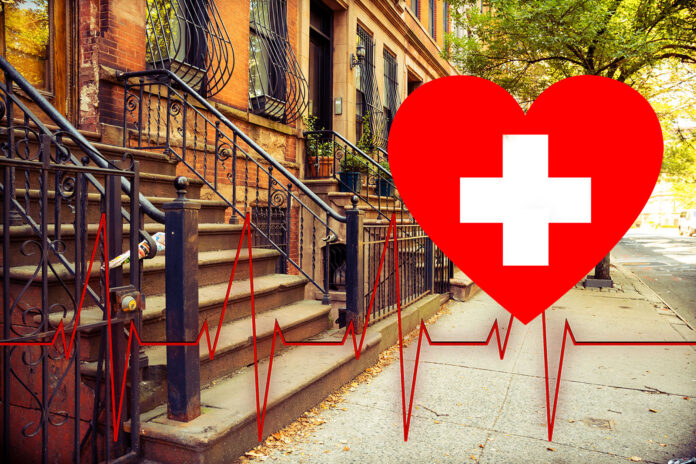The streets of Harlem, pulsating with energy, creativity, and resistance, have borne witness to significant changes throughout the 20th century. As Black Health Matters prepares for our massive Harlem Week Health Summit & Expo, we’re reminded of the rich history this area has had when it comes to prioritizing Black health.
From the vibrant Harlem Renaissance to tumultuous civil rights movements, this neighborhood has been a bastion for African-American culture and socio-political activism. But amidst these famed events, the story of Black healthcare in Harlem unfolds—reflecting struggles, innovations, and resilience.
Lafargue Clinic & Mental Health Care
In 1946, the Lafargue Clinic emerged as a beacon of hope for the Black community’s mental health needs. Established by a fusion of Black intellectuals and German-Jewish doctors, including luminaries like Richard Wright and Ralph Ellison, the clinic aimed to bridge the glaring gap in psychiatric care available to African Americans. Rooted in the basement of a church and providing free care, this institution stood as America’s pioneering mental health facility catering specifically to Black individuals until `958. The genesis of this clinic wasn’t merely about medical care; it was a revolt against racism and a move to address the psychological scars it leaves behind.
Scholars like Associate Professor Dennis Doyle and Professor Martin Summers have delved deep into the intricacies of Black mental health care, showcasing how racism has shaped psychiatric practices. Their works spotlight the complex dynamics between race and medicine in Harlem and its broader implications.
Harlem Hospital & Desegregation of Healthcare
Parallelly, the Harlem Hospital’s story encapsulates the strenuous journey toward racial integration in medicine. Initiated in the early 1910s, efforts to desegregate the New York hospital system only bore fruit during the 1910s and 1920s, largely catalyzed by wartime staffing shortages. But with integration came conflict. The inclusion of Black medical professionals, such as Louis T. Wright—the hospital’s first black doctor in 1919—was met with pushback, resignation, and even aggressive confrontations by the existing white medical fraternity.
The tension reached its zenith with a riot in 1935, a violent manifestation of the ongoing racial discord at the hospital. Yet, even as Harlem Hospital attempted to evolve, its reputation remained stained for years, evident when Martin Luther King Jr. was hesitantly admitted for emergency care in 1958.
These episodes from the Harlem Hospital not only reveal the challenges faced during desegregation but also underscore the complexity of achieving racial equity in healthcare.
The Changing Tone of Harlem
But the broader canvas of Harlem in the early 20th century reveals even more. As the neighborhood’s demographics shifted dramatically during the 1920s and 1930s, the focus has often been on its cultural and political strides. However, in the backdrop, the everyday struggles of Harlem’s Black residents—especially their endeavors towards health, wellness, and community upliftment—deserve equal attention. The book, “Building a Healthy Black Harlem,” seeks to fill this narrative gap, spotlighting how health became a politicized topic. Within the unfolding politics and economics, the Black community’s quest for wellness took center stage, revealing the intricate dance between health, politics, and race.
In a recent event, the renowned Abyssinian Baptist Church in Harlem threw the spotlight on another dimension of healthcare—the “All of Us” initiative. By introducing this modern medical study amidst a spiritual service, it brought to the fore the long-standing hesitance among African Americans to participate in medical research, stemming from past racial abuses in medical studies. While many in the community show enthusiasm, others remain skeptical, bearing testimony to the deep-seated scars of past medical malpractices.
The history of Black healthcare in Harlem, filled with challenges, innovations, and battles against systemic racism, offers vital lessons. It speaks of a community’s perseverance against odds and its unyielding quest for dignity, well-being, and justice.
Join us on August 17th as Black Health Matters does its part to add to Harlem’s rich history of healthcare for the Black Community. The Harlem Week Health Summit & Expo will feature seminars, speakers, and vital health screenings that are designed to help all comers become CEOs of their own health. Don’t miss this opportunity to join us live or virtually for this FREE life-changing event. Register today!








